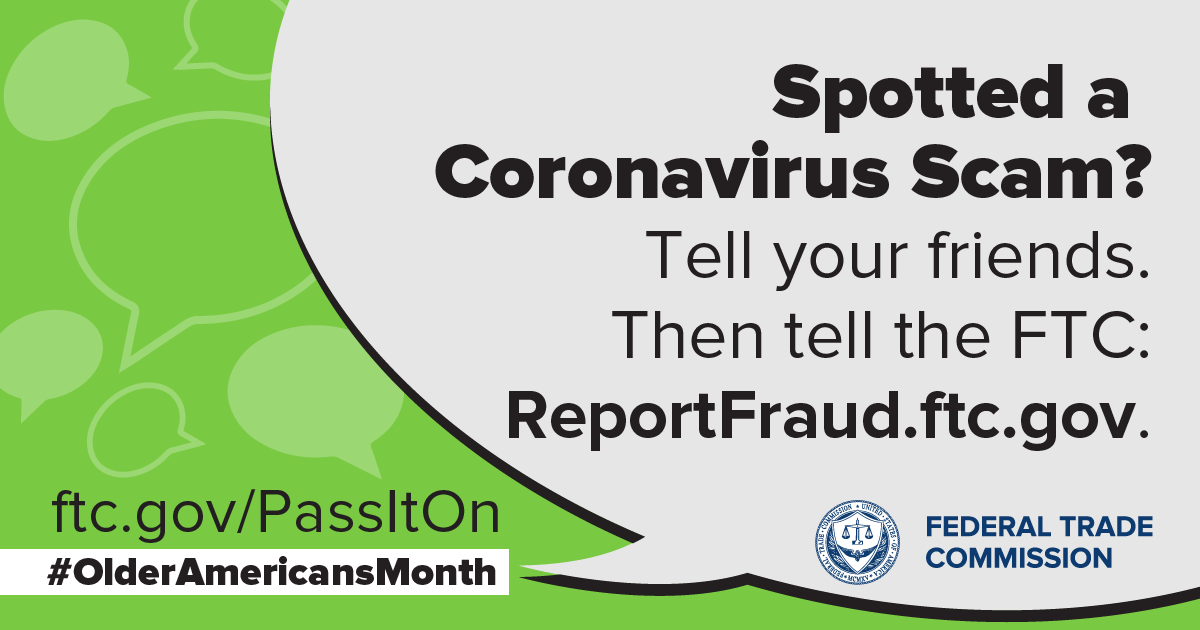
During this past year, the COVID-19 pandemic and its economic fallout have reminded us how important it is to help each other through difficult times. In May, as we celebrate Older Americans Month, remember that one of the best ways to help your friends and family is to pass on what you know about how to spot and avoid Coronavirus-related scams.
Here are some things to share:
- COVID-19 vaccines are free. If anyone charges you for help signing up or the shot itself, it’s a scam.
- Scammers may pose as the government and contact you to ask for payment — in cash, gift cards, wire transfer, or cryptocurrency. The government will never ask you to pay in any of those ways, but scammers will.
- FEMA’s not reaching out to register you for the new U.S. government program to help with funeral costs of family members who died due to COVID-19. FEMA will not contact you before you register with them. Only scammers will.
- Shopping online is less of an adventure than it was early in the pandemic, but it still pays to do some checking before you buy. If you find yourself shopping on a site you don’t usually do business with, search online for their name plus “complaint,” “review,” and “scam.” See what others think of them before you hand over your credit card number.
- Think critically about your sources of information. When you’re looking for pandemic-related help, start with sites like coronavirus.gov and usa.gov/coronavirus to get the latest information directly from the government.
For more tips to share with your community, visit Pass It On and subscribe to Consumer Alerts. And if you spot a scam, report it at ReportFraud.ftc.gov.
